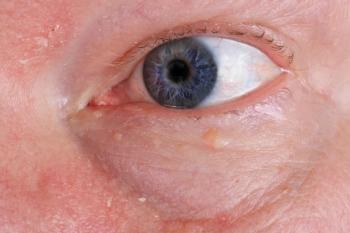
Cataract Co-management-an OD’s perspective
In this month’s issue, we focus on cataract surgery co-management. It’s a topic especially close to my heart because I ran an optometric co-management center for a few years. It wasn’t until I was in that setting that I gave surgical co-management a lot of thought. I mean, I had co-managed more than my share of cataract patients in my two-office practice over the years and felt quite adept at caring for the patient post-surgery. What I learned working with the center’s excellent surgeon was that before, I had only been doing part of the job. I also found that I could do more on the front end to make his job-and mine-easier.
For instance, I used to knee-jerk refer the cataract patient to the surgeon without a moment’s hesitation, leaving the entire discussion of cataract surgery, risks, benefits, and IOL options to the surgeon and his staff. After all, that’s their job, right? When working at the center, I realized very quickly this approach was incomplete. Many times cataract diagnoses are made by an optometrist. Patients look to us to not only guide them to a surgeon they can trust but to answer their questions about the procedure. And you can bet they are going to have questions about the procedure. While we as ODs may deal with cataract patients on a daily basis and become somewhat impassive to the presentation, you can bet the diagnosis and impending surgery is a major concern to your patient and her family. Besides, we’re the ones who took the time to understand the patient’s visual needs and built the relationship with the patient over the years. While the patient will have most of the same discussion with the surgeon, pre-operative counseling and establishing realistic expectations by you initially in your office before the referral will help ease the patient’s acceptance of the process. That includes letting the patient know what to expect at the initial work-up visit with the surgeon, discussing the procedure, and what will take place post-operatively in your office.
Your pre-op counseling also should include a discussion of IOL options. Baby boomers are a demanding lot and have high expectations. They do not want their vision compromised, and boomers expect high quality, which makes them prime candidate for premium IOLs, including presbyopia-correcting IOLs and toric IOLs.
You can do your patient and the surgeon a huge favor by dealing with any ocular surface problems before the consultation visit. Untreated ocular surface disease can affect IOL calculations and thus post-operative corrections, so any dry eye or meibomian gland dysfunction needs to be addressed sooner rather than later. More on that in a coming editorial. I always leave the patient with a word about posterior capsular opacification. While the results of cataract surgery more often than not exceed the patient’s expectations, the patient still needs to know this initial result may not last due to capsular haze but can easily be addressed in the future should the need arise. This discussion lets the patient knows you’re going to be with her every step of the way, which is what providing a lifetime of eyecare is all about.ODT
Newsletter
Want more insights like this? Subscribe to Optometry Times and get clinical pearls and practice tips delivered straight to your inbox.













































